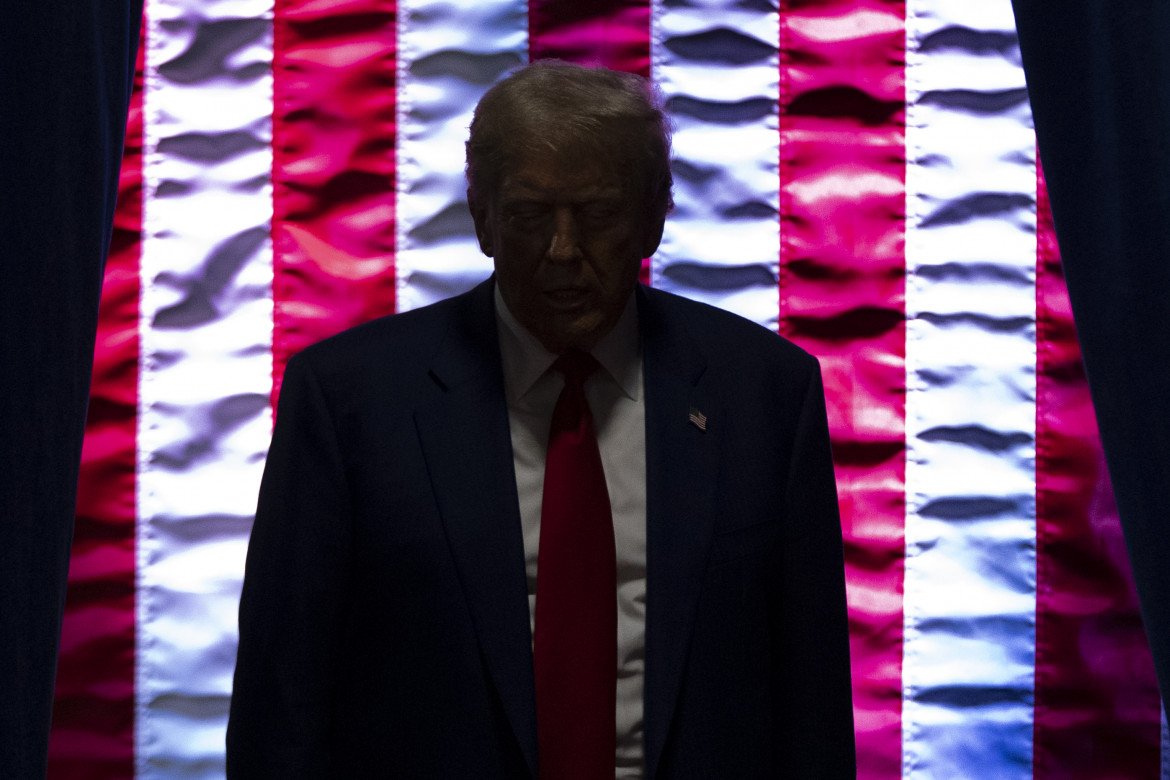Commentary
Trump conquered America by first conquering reality
In a game in which communication ends up being everything – the playing field, the strategy and the sole metric of the game – the mainstream media are going the way of the Democratic Party: they never have the ball at all.

“You're the media now” – it’s hard to find a more revealing comment about what has led to Donald Trump's victory. It came from Elon Musk, the chosen one, the “super genius” in Trump’s words, but also the owner of X, formerly Twitter, the platform where he posted it. But “the media” he is referring to is certainly not the ordinary users he seemed to be addressing. In fact, “the media” is none other than Musk himself.
And he has embodied that role to the fullest as he blatantly made political use of his platform in favor of the Trumpian agenda, whether overtly or covertly, hidden behind the algorithms. So, we have a master telling the people: “You are the master.” And managing to convince them – just as much as the victorious Trump has been successful in casting himself as a champion of the middle class.
The narrative that contradicts reality is a central element of this success. Trump and the circle of billionaires who have decided to invest in him, representatives of the class that bears the greatest (if not full) responsibility for the disasters we are now facing – the economic crisis, the climate crisis, the wars – have been successful in presenting themselves as the way out of the quagmire. They succeeded not in the name of a political agenda – which they do have, in written form, and which is terrifying – but by virtue of an emotional discourse that turns every election, including those for president, into a referendum on the small reassuring things no one wants to give up: fortified borders, traditional values (including masculinism), safety in the neighborhood.
In constructing an alternative narrative to the factual one, the role of proprietary digital platforms is crucial. Symbolically, and not only, we are much closer than ever to the installation of the richest of the tech-billionaries directly into the White House. Before it was a political project, surveillance capitalism was a perfect business model: so perfect that it is able to react to the signs of upcoming crisis by taking power directly. All this with a (not at all) hidden agenda that will further devastate the world, enrich the wealthy and impoverish many millions of Trump voters.
In a game in which communication ends up being everything – the playing field, the strategy and the sole metric of the game – the mainstream media are going the way of the Democratic Party: they never have the ball at all.
Behind their desks, in a world where the rationality of neoliberal discourse and the forms of democracy still apply, Trump is obviously a foreign body. But the fact is that he and his minions are speaking elsewhere: the infosphere has plenty of spaces. If there was one novelty that marked this campaign, it was likely the decline of an ancient medium that had so far kept its central role in conveying information: television. Trump lost badly in the only televised debate he did with Harris and then refused to do any more, but that debacle didn’t matter. Quite the contrary: even during the debate, the more he pushed extreme positions – “Haitians are eating the dogs” – thus becoming a meme, the more he consolidated his own electorate (even in the county he mentioned, where dogs were not in fact being eaten) without losing votes.
After the dress rehearsal four years ago, this was the first election that played out from start to finish without any common factual basis shared by the two contending parties. Largely aligned against Trump, the mainstream media, with the New York Times at the head, failed to offer a true alternative viewpoint on any of the central issues in the tycoon's own narrative – security, immigration, economic protectionism – but merely offered a more moderate one than his own. Not unlike the Democratic Party itself. And the particular episode of subscribers fleeing the Washington Post over its failure to endorse Harris, read by liberals as proof that critical thinking was still alive and kicking, is worth looking at more carefully.
The paper had not changed its critical line toward Trump (and still hasn’t to this day), but for reasons of obvious opportunism on the part of its owner, billionaire Jeff Bezos, it shied away from making itself officially “pro-Democrat” with a presidential endorsement. And this itself triggered the crisis, because this is what mainstream media has also become: a gathering place for hardcore partisans. And for the same reason, now, after Trump’s election, it won’t be able to enjoy the first-time panic effect of eight years ago, the “Trump bump” that inflated its sales. Quality information for elites remains sheltered behind expensive paywalls, but these also function as a screen filtering the reality on the ground, that of actual voters. And now, the proverbial flood – not understood and not predicted – has finally come.
Originally published at https://ilmanifesto.it/la-vittoria-del-divorzio-dalla-realta on 2024-11-07
